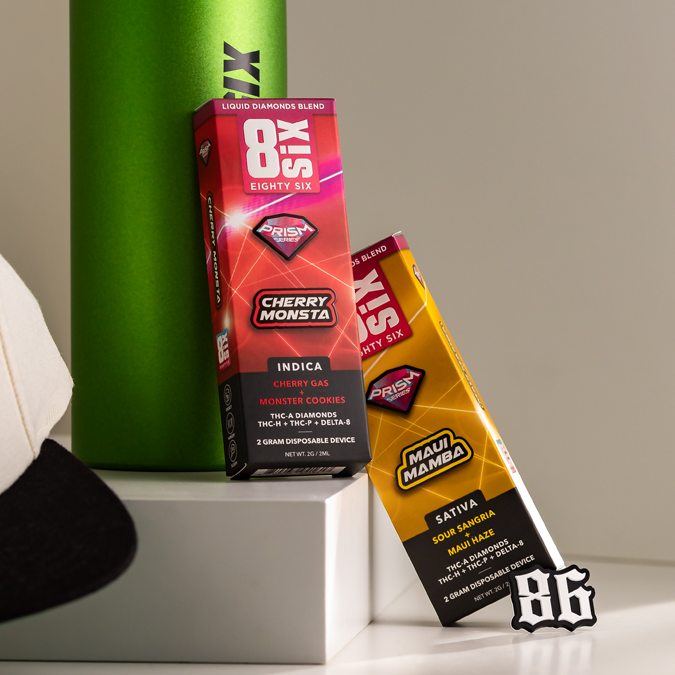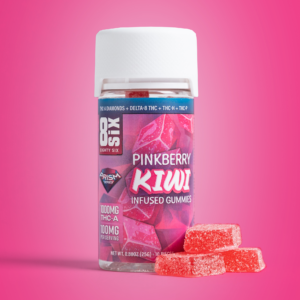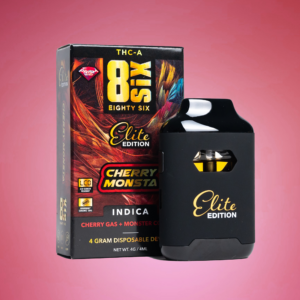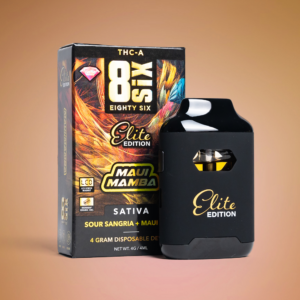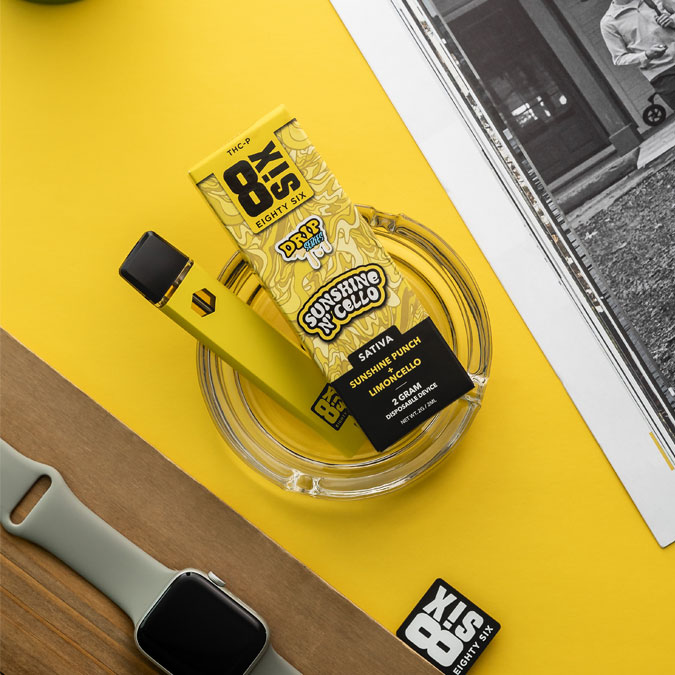In recent years, the world has moved beyond CBD to explore other cannabinoids. Past the infamous THC and CBD, which continue to garner attention, stands an alternative cannabinoid: THCa. Also known as tetrahydrocannabinolic acid, it’s emerged with a list of potential benefits and unique effects. Some questions remain, though – is THCa psychoactive? What are the effects of THCa vs. CBD?
Our guide on the topic aims to answer these questions and more. Let’s examine two widely popular cannabinoids that deserve wild praise. From there, we can understand how they’re helping to shape the future of cannabis.
What is THCa?
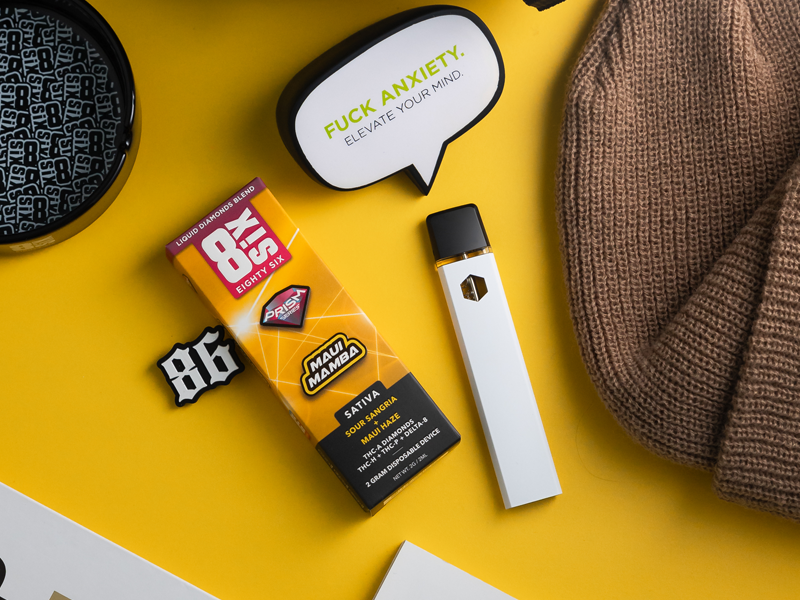
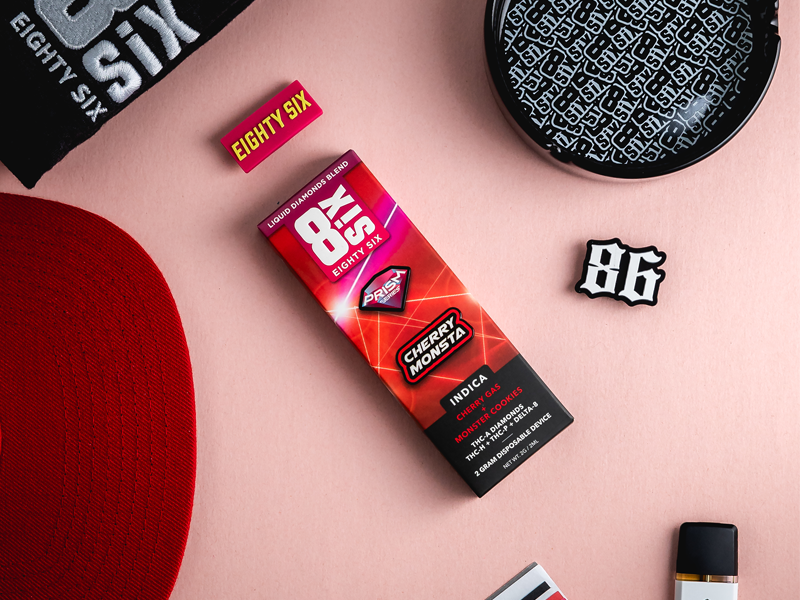
THCa, or tetrahydrocannabinolic acid, serves as a precursor to THC. To put it simply, THCa is THC in its raw form. As a result, if you consume THCa before it’s activated, it won’t induce a high. And that’s because THCa doesn’t bind to our CB1 receptors in our endocannabinoid system (ECS) the same way THC does. When THC binds to our receptors, it produces psychoactive effects in many consumers.
The cannabinoid is abundant in freshly harvested cannabis flower. THCa may offer potential therapeutic benefits without the associated intoxication. That may be a plus for users who currently avoid THC due to its adverse effects. Research suggests that THCa may have anti-inflammatory, neuroprotective, anxiolytic effects, and more.
However, THCa needs decarboxylation to become active. That’s a process that occurs when exposing the cannabinoid to heat. It’s what causes the ‘high’ when consuming cannabis high in THC.
Understanding the difference between THCa and THC is crucial. It helps us explore the diverse array of cannabinoids even closer. It also showcases that even in different forms, version of THC may have applications in medicine and wellness.
Is THCa Psychoactive?
So, now we know the answer. Is THCa psychoactive? No – unless you heat it up.
THCa can become psychoactive when you convert it to THC through heat. The process is called decarboxylation. When heated, THCa loses a carboxyl group, converting to THC.
So, while THCa doesn’t produce high, THCa, when heated, does. Decarboxylate the cannabinoid to unlock its potential for psychoactivity.
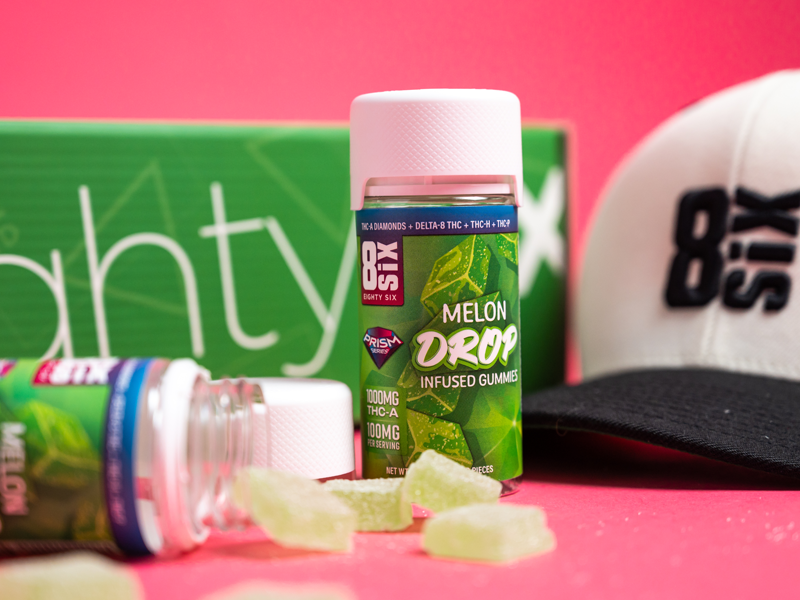
What is CBD?
CBD is short for cannabidiol. It’s a prominent cannabinoid is come cannabis plants, including legal hemp. Unlike THC, CBD is completely non-psychoactive. It won’t produce the euphoric ‘high’ associated with cannabis use.
The non-intoxicating cannabinoid interacts with the body’s endocannabinoid system. That system, in particular, plays a role in regulating various physiological processes. These might include mood, sleep, appetite, and even our pain sesnsationn.
Unlike THCC, though, CBD doesn’t bind directly to our CB1 receptors in the brain. Those receptors are responsible for the psychoactive side effects from THC.
Even though it won’t produce a high, there’s a lot of potential for CBD. Research suggests the compound offers a wide range of health benefits.
Pain Relief
Various studies and systematic reviews assess CBD’s potential against pain. As it stands, CBD may help alleviate chronic pain in some individuals. It may reduce inflammation and interacts with the neurotransmitters that signal pain.
Anxiety & Depression
CBD continues to show promise in reducing symptoms of anxiety & depression. It does so by possibly influencing serotonin receptors in the brain. More research is necessary, but what we see so far offers promising possibilities.
Neuroprotective Properties
Neuroprotection is an approach that seeks to defend our central nervous system (CNS). Something with neuroprotective properties may help reduce harm to the brain or nerves. CBD may benefit individuals with neurological disorders, including epilepsy and multiple sclerosis.
Anti-Inflammatory Effects
Research shows how powerful CBD’s anti-inflammatory properties are. It makes it wildly relevant for conditions characterized by inflammation. These include arthritis, inflammatory bowel disease, and more.
Antioxidant Properties
Finally, CBD acts as antioxidant. It may protect cells from oxidative stress. That can, in turn, potentially reduce the risk of certain chronic disease.
THCa vs. CBD: Psychoactivity Potential
Next, let’s look closer at the potential for THCa vs. CBD. It’s important to understand their distinct properties and how they interact with our ECS.
Non-Psychoactive
THCa is the precursor to THC, but it’s non-psychoactive in its raw form. Consuming THCa alone won’t produce any intoxicating effects. It must have already gone through decarboxylation.
CBD, on the other hand, is always non-psychoactive. There’s no decarboxylation step to make it intoxicating. That’s because CBD doesn’t bind to our CB1 receptors, which are responsible for psychoactive effects.
Potential Psychoactivity
THCa itself is not psychoactive. But, as mentioned, it can become psychoactive. It does so through a process called decarboxylation. Decarboxylation happens when exposing THCa to heat. That can be done through smoking, vaping, or even cooking the cannabinoid. The process of heat converts THCa into THC, the primary psychoactive compound in cannabis.
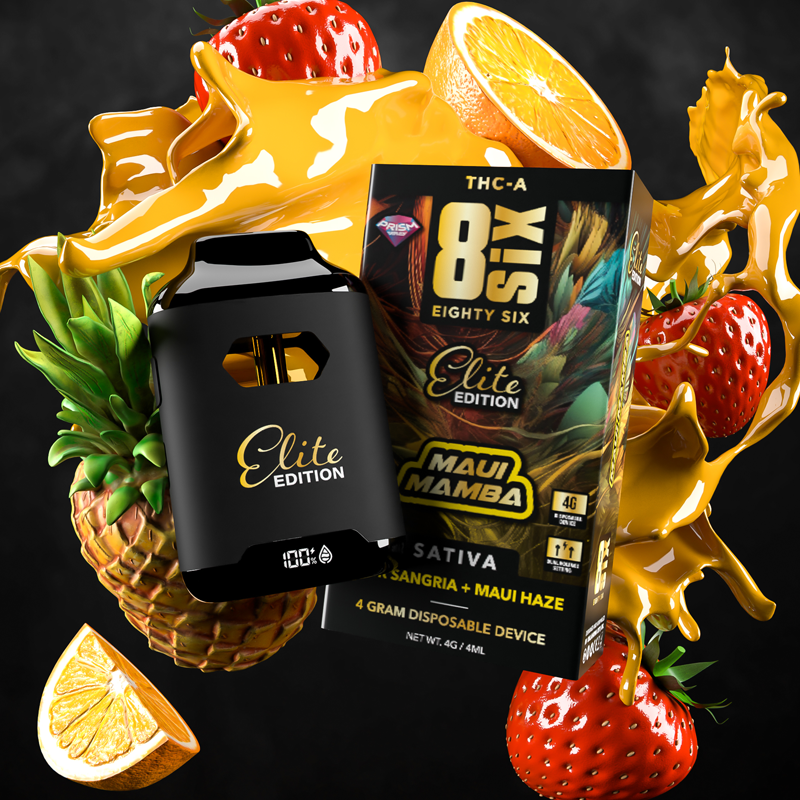
Meanwhile, CBD may modulate the psychoactive effects of THC. It depends vastly on when you take CBD in relation to when you take THC. By interacting with CB1 receptors, CBD may balance or reduce the intoxicating effects of THC. Or, if taking CBD ahead of time, it may accentuate THC’s effects. The combination can lead to a more balanced and manageable experience, overall.
Decarboxylation Station
THCa relies on heat to become psychoactive. Light up some THCa flower and experience the effects of THC. The result is THC’s intoxicating effects.
Conversely, even in high doses, CBD doesn’t produce intoxication or impairment. It’s a preferred option for those seeking the therapeutic benefits of cannabis without psychoactive side effects.
In summary, THCa vs CBD differ in their psychoactivity potential. While THCa is non-psychoactive in its raw form, it can become psychoactive through decarboxylation. CBD, on the other hand, is non-psychoactive and does not produce intoxicating effects.
Understanding the differences can help you seek a better therapeutic outcome. You might use it to manage your cannabis consumption better.
Closing Thoughts
We were able to compare THCa vs CBD in our guide and answer the question, “is THCa psychoactive?” Now, we know CBD is non-psychoactive, but that THCa simply needs heat to activate.
Once activated, THCa converts into THC, the cannabinoid we all know and love. The result is an intoxicating or psychoactive ‘high’ many consumers are familiar with. Be sure to try out the latest THCa and CBD products to discover your favorite. Which will you try next?

